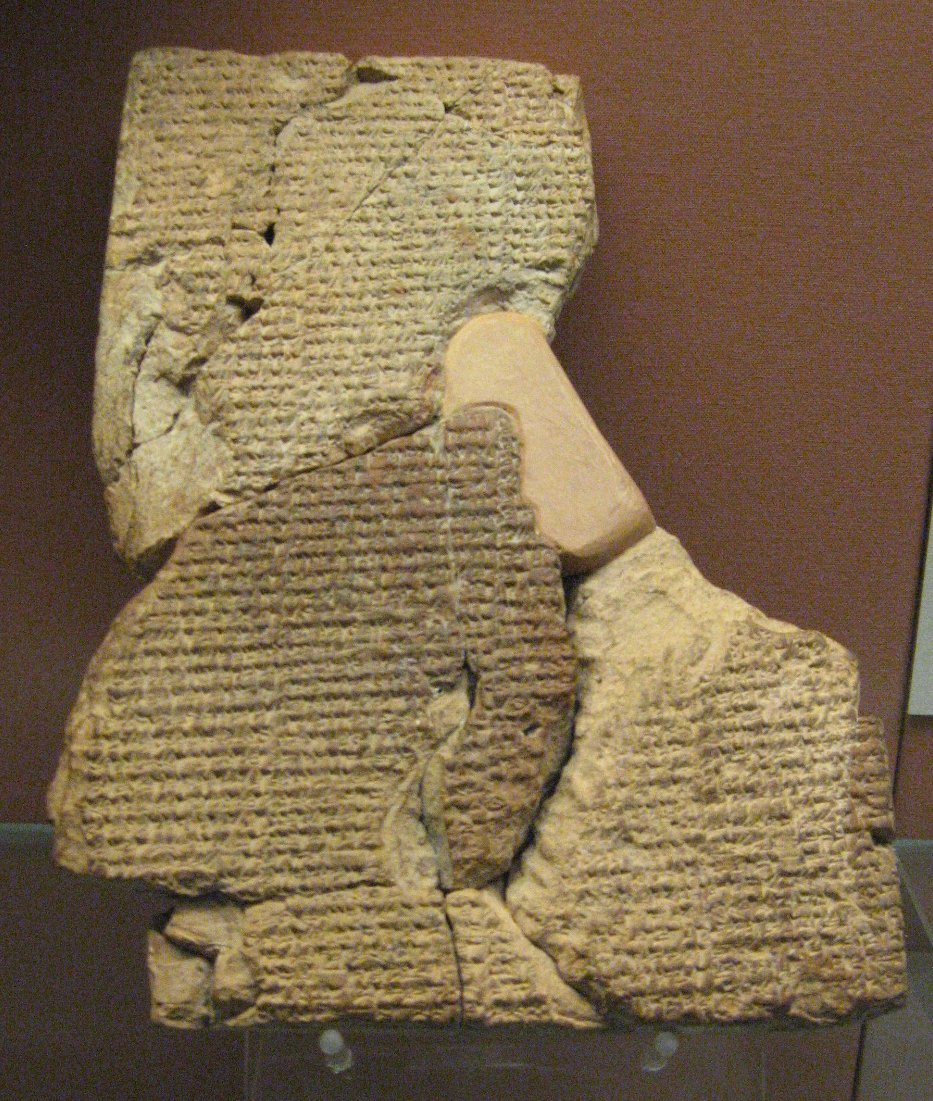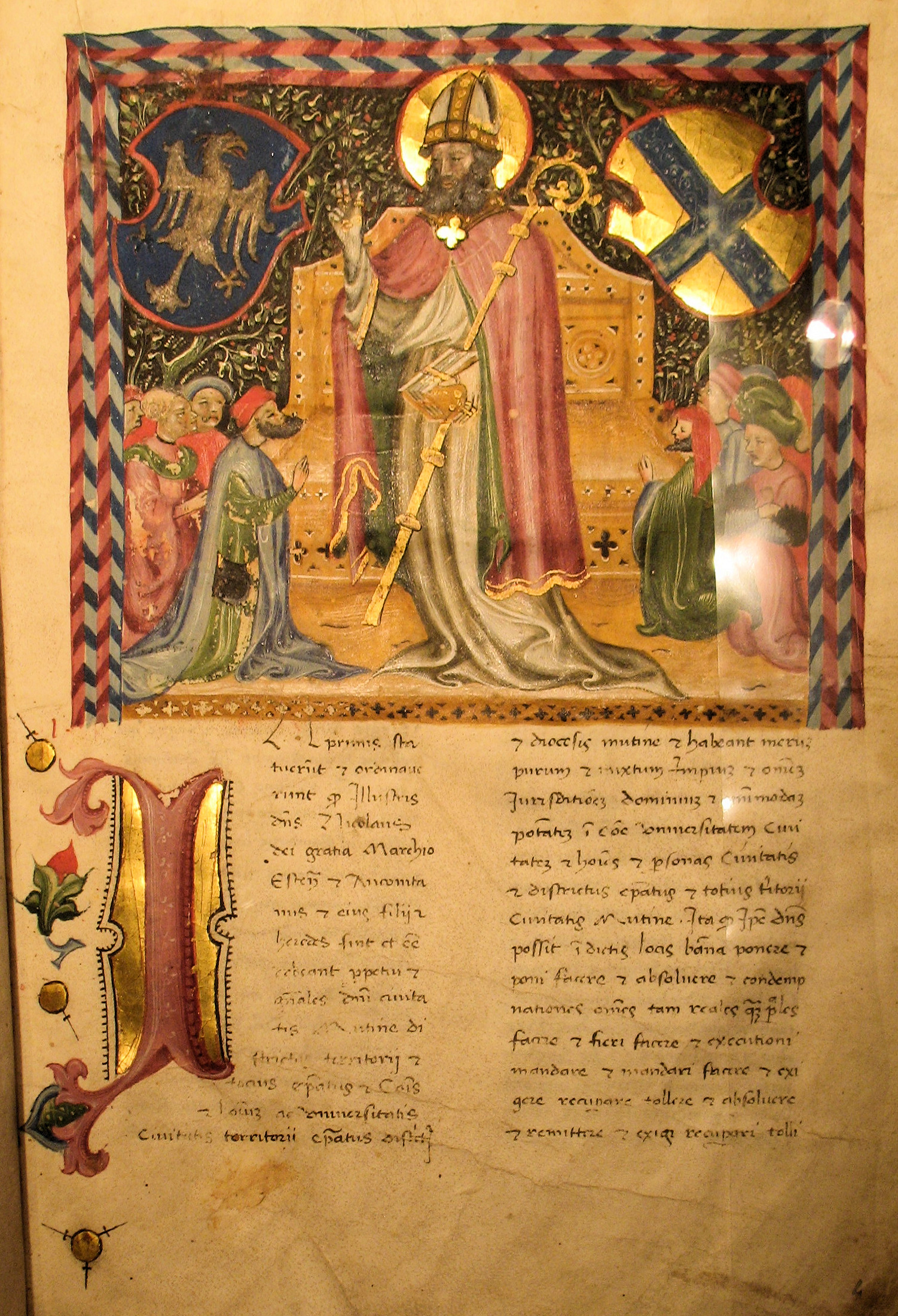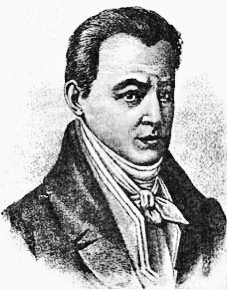|
Kievan Synopsis
The ''Synopsis'', also known as the ''Kievan Synopsis'' or ''Kyivan Synopsis'' () is work of history, first published in Kiev in 1674. It interprets history through a Christian conception of time focused on the narratives of creation, fall, and redemption. It also had a political purpose to justify the Treaty of Pereyaslav which annexed the Cossack Hetmanate to the Tsardom of Russia while also claiming a central role for the city of Kiev. Innokentiy Gizel is generally considered to be the author of ''Synopsis'', however this is arguable. ''Synopsis'' was the first textbook on the subject of Russian history written in any Slavic language. It was rather popular until the mid-19th century and survived some thirty editions. The book began with the history of the origins and lifestyle of the Slavs and ended with the mid-17th century in the first edition. The second and third editions (1678 and 1680) end with the Chyhyryn Campaigns of 1677-1678. ''Synopsis'' covers the history of Kie ... [...More Info...] [...Related Items...] OR: [Wikipedia] [Google] [Baidu] |
Genesis Creation Narrative
The Genesis creation narrative is the creation myth of both Judaism and Christianity. The narrative is made up of two stories, roughly equivalent to the first two chapters of the Book of Genesis. In the first, Elohim (the Hebrew generic word for God) creates the heavens and the Earth in six days, then rests on, blesses, and sanctifies the seventh (i.e. the Biblical Sabbath). In the second story God (now referred to by the personal name Yahweh) creates Adam, the first man, from dust and places him in the Garden of Eden. There he is given dominion over the animals. Eve, the first woman, is created from Adam’s rib as his companion. The Hebrew creation narrative borrowed themes from Mesopotamian mythology, but adapted them to their unique belief in one God. The first major comprehensive draft of the Pentateuch (the series of five books which begins with Genesis and ends with Deuteronomy) is thought to have been composed in the late 7th or the 6th century BCE (the Jahwist sour ... [...More Info...] [...Related Items...] OR: [Wikipedia] [Google] [Baidu] |
Grand Prince Of Kiev
The Grand Prince of Kiev (sometimes grand duke) was the title of the ruler of Kiev and the ruler of Kievan Rus' from the 10th to 13th centuries. In the 13th century, Kiev became an appanage principality first of the grand prince of Vladimir and the Mongol Golden Horde governors, and later was taken over by the Grand Duchy of Lithuania. Princes of Kiev Mythological rulers According to Slavophiles, Kyi ruled since 430, one of the dates attributed to the legendary founding of Kiev in 482, although that date relates to Kovin on the Danube in Serbia. Some historians speculate that Kyi was a Slavic prince of eastern Polans in the 6th century. Kyi's legacy along with Shchek's is mentioned in the Book of Veles, the authenticity of which, however, is disputed. Oleg, an apocryphal Kiev voivode, probably of Danish or Swedish origin, ruled under the overlordship of the Khazar Khaganate. Bravlin was a Varangian prince or chieftain, who led a Rus military expedition to devastate the C ... [...More Info...] [...Related Items...] OR: [Wikipedia] [Google] [Baidu] |
History Textbooks
Historiography is the study of the methods of historians in developing history as an academic discipline, and by extension is any body of historical work on a particular subject. The historiography of a specific topic covers how historians have studied that topic using particular sources, techniques, and theoretical approaches. Scholars discuss historiography by topic—such as the historiography of the United Kingdom, that of WWII, the British Empire, early Islam, and China—and different approaches and genres, such as political history and social history. Beginning in the nineteenth century, with the development of academic history, there developed a body of historiographic literature. The extent to which historians are influenced by their own groups and loyalties—such as to their nation state—remains a debated question. In the ancient world, chronological annals were produced in civilizations such as ancient Egypt and Mesopotamia. However, the discipline of historio ... [...More Info...] [...Related Items...] OR: [Wikipedia] [Google] [Baidu] |
Medieval Literature
Medieval literature is a broad subject, encompassing essentially all written works available in Europe and beyond during the Middle Ages (that is, the one thousand years from the fall of the Western Roman Empire ca. AD 500 to the beginning of the Renaissance in the 14th, 15th or 16th century, depending on country). The literature of this time was composed of religious writings as well as secular works. Just as in modern literature, it is a complex and rich field of study, from the utterly sacred to the exuberantly profane, touching all points in-between. Works of literature are often grouped by place of origin, language, and genre. Languages Outside of Europe, medieval literature was written in Ethiopic, Syriac, Coptic, Japanese, Chinese, and Arabic, among many other languages. In Western Europe, Latin was the common language for medieval writing, since Latin was the language of the Roman Catholic Church, which dominated Western and Central Europe, and since the Church was v ... [...More Info...] [...Related Items...] OR: [Wikipedia] [Google] [Baidu] |
Ukrainian Literature
Ukrainian literature is literature written in the Ukrainian language. Ukrainian literature mostly developed under foreign domination over Ukrainian territories, foreign rule by the Polish–Lithuanian Commonwealth, Poland, the Russian Empire, the Kingdom of Romania, the Austria-Hungary Empire, and the Ottoman Empire, enriched Ukrainian culture and language, and Ukrainian authors were able to produce a rich literary heritage. Ukrainian literature’s precursor: writings in Old-Church Slavonic and Latin in Ukraine Prior to the establishment of Ukrainian literature in 1700s, many authors from Ukraine wrote in "scholarly" languages of middle-ages – Latin and Old-Church Slavonic. Among prominent authors from Ukraine who wrote in Latin and Old-Church Slavonic are Hryhorii Skovoroda, Yuriy Drohobych, Stanislav Orikhovsky-Roxolan, Feofan Prokopovych, , and others. The beginnings of oral Ukrainian literature During this period of history there was a higher number of elementa ... [...More Info...] [...Related Items...] OR: [Wikipedia] [Google] [Baidu] |
Russian Non-fiction Books
Russian(s) refers to anything related to Russia, including: *Russians (, ''russkiye''), an ethnic group of the East Slavic peoples, primarily living in Russia and neighboring countries *Rossiyane (), Russian language term for all citizens and people of Russia, regardless of ethnicity *Russophone, Russian-speaking person (, ''russkogovoryashchy'', ''russkoyazychny'') *Russian language, the most widely spoken of the Slavic languages *Russian alphabet *Russian cuisine *Russian culture *Russian studies Russian may also refer to: *Russian dressing *''The Russians'', a book by Hedrick Smith *Russian (comics), fictional Marvel Comics supervillain from ''The Punisher'' series *Russian (solitaire), a card game * "Russians" (song), from the album ''The Dream of the Blue Turtles'' by Sting *"Russian", from the album ''Tubular Bells 2003'' by Mike Oldfield *"Russian", from the album '' '' by Caravan Palace *Nik Russian, the perpetrator of a con committed in 2002 *The South African name for a ... [...More Info...] [...Related Items...] OR: [Wikipedia] [Google] [Baidu] |
Metropolitan Bishop
In Christian churches with episcopal polity, the rank of metropolitan bishop, or simply metropolitan (alternative obsolete form: metropolite), pertains to the diocesan bishop or archbishop of a metropolis. Originally, the term referred to the bishop of the chief city of a historical Roman province, whose authority in relation to the other bishops of the province was recognized by the First Council of Nicaea (AD 325). The bishop of the provincial capital, the metropolitan, enjoyed certain rights over other bishops in the province, later called " suffragan bishops". The term ''metropolitan'' may refer in a similar sense to the bishop of the chief episcopal see (the "metropolitan see") of an ecclesiastical province. The head of such a metropolitan see has the rank of archbishop and is therefore called the metropolitan archbishop of the ecclesiastical province. Metropolitan (arch)bishops preside over synods of the bishops of their ecclesiastical province, and canon law and traditio ... [...More Info...] [...Related Items...] OR: [Wikipedia] [Google] [Baidu] |
Hetman
( uk, гетьман, translit=het'man) is a political title from Central and Eastern Europe, historically assigned to military commanders. Used by the Czechs in Bohemia since the 15th century. It was the title of the second-highest military commander in the Crown of the Kingdom of Poland and the Grand Duchy of Lithuania from the 16th to 18th centuries. Throughout much of the history of Romania and the Moldavia, hetmans were the second-highest army rank. In the modern Czech Republic the title is used for regional governors. Etymology The term ''hetman'' was a Polish borrowing, probably from the German – captain or a borrowing of the comparable Turkic title ''ataman'' (literally 'father of horsemen'). Hetmans of Poland and Lithuania The Polish title ''Grand Crown Hetman'' ( pl, hetman wielki koronny) dates from 1505. The title of ''Hetman'' was given to the leader of the Polish Army. Until 1581 the hetman position existed only during specific campaigns and wars. After tha ... [...More Info...] [...Related Items...] OR: [Wikipedia] [Google] [Baidu] |
Cossack
The Cossacks , es, cosaco , et, Kasakad, cazacii , fi, Kasakat, cazacii , french: cosaques , hu, kozákok, cazacii , it, cosacchi , orv, коза́ки, pl, Kozacy , pt, cossacos , ro, cazaci , russian: казаки́ or , sk, kozáci , uk, козаки́ are a predominantly East Slavic Orthodox Christian people originating in the Pontic–Caspian steppe of Ukraine and southern Russia. Historically, they were a semi-nomadic and semi-militarized people, who, while under the nominal suzerainty of various Eastern European states at the time, were allowed a great degree of self-governance in exchange for military service. Although numerous linguistic and religious groups came together to form the Cossacks, most of them coalesced and became East Slavic-speaking Orthodox Christians. The Cossacks were particularly noted for holding democratic traditions. The rulers of the Polish-Lithuanian Commonwealth and Russian Empire endowed Cossacks with certain spe ... [...More Info...] [...Related Items...] OR: [Wikipedia] [Google] [Baidu] |
Little Russia
Little Russia (russian: Малороссия/Малая Россия, Malaya Rossiya/Malorossiya; uk, Малоросія/Мала Росія, Malorosiia/Mala Rosiia), also known in English as Malorussia, Little Rus' (russian: Малая Русь, Malaya Rus'; uk, Мала Русь, translit=Mala Rus') and Rus' Minor (from el, Μικρὰ Ῥωσία, translit=Mikrá Rosía), is a geographical and historical term used to describe the modern-day territories of Ukraine. The first use of such names has been attributed to Bolesław-Jerzy II, ruler of Ruthenia and Galicia-Volhynia, who in 1335 signed his decrees ''Dux totius Russiæ minoris''. The distinction between "Great" and "Little" Rus' probably originated among Byzantine, Greek-speaking, clerics who wanted to separate the two Ruthenian ecclesiastical metropolises of Halych and Moscow. The specific meaning of the adjectives "Great" and "Little" in this context is unclear. It is possible that terms such as "Little" and "L ... [...More Info...] [...Related Items...] OR: [Wikipedia] [Google] [Baidu] |
Voivode
Voivode (, also spelled ''voievod'', ''voevod'', ''voivoda'', ''vojvoda'' or ''wojewoda'') is a title denoting a military leader or warlord in Central, Southeastern and Eastern Europe since the Early Middle Ages. It primarily referred to the medieval rulers of the Romanian-inhabited states and of governors and military commanders of Hungarian, Balkan or some Slavic-speaking populations. In the Polish-Lithuanian Commonwealth, ''voivode'' was interchangeably used with ''palatine''. In the Tsardom of Russia, a voivode was a military governor. Among the Danube principalities, ''voivode'' was considered a princely title. Etymology The term ''voivode'' comes from two roots. is related to warring, while means 'leading' in Old Slavic, together meaning 'war leader' or 'warlord'. The Latin translation is for the principal commander of a military force, serving as a deputy for the monarch. In early Slavic, ''vojevoda'' meant the , the military leader in battle. The term has als ... [...More Info...] [...Related Items...] OR: [Wikipedia] [Google] [Baidu] |
Poland
Poland, officially the Republic of Poland, is a country in Central Europe. It is divided into 16 administrative provinces called voivodeships, covering an area of . Poland has a population of over 38 million and is the fifth-most populous member state of the European Union. Warsaw is the nation's capital and largest metropolis. Other major cities include Kraków, Wrocław, Łódź, Poznań, Gdańsk, and Szczecin. Poland has a temperate transitional climate and its territory traverses the Central European Plain, extending from Baltic Sea in the north to Sudeten and Carpathian Mountains in the south. The longest Polish river is the Vistula, and Poland's highest point is Mount Rysy, situated in the Tatra mountain range of the Carpathians. The country is bordered by Lithuania and Russia to the northeast, Belarus and Ukraine to the east, Slovakia and the Czech Republic to the south, and Germany to the west. It also shares maritime boundaries with Denmark and Sweden. ... [...More Info...] [...Related Items...] OR: [Wikipedia] [Google] [Baidu] |






.png)